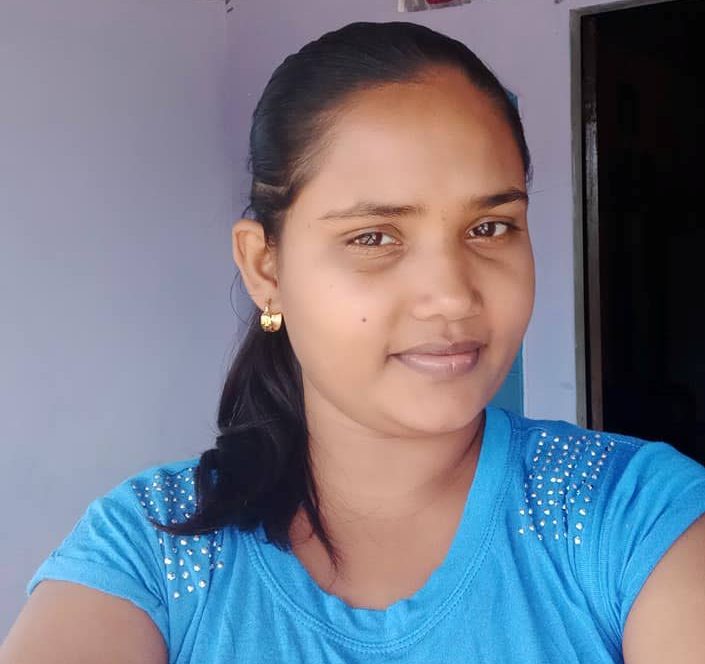NGOs: ‘Gender-sensitive’ budgets crucial for ending domestic violence

ADVOCATES for women’s rights say they feel hurt and horrified by the story of 25-year-old Reshma Kanchan’s murder. They believe the unfortunate increase in violence against women alerts government that a “gender-informed, gender-sensitive” budget is crucial.
Kanchan was chopped on her way to work in Penal on Tuesday morning after being ambushed by a male relative. She leaves behind two daughters, two and five.
Her family told Newsday several people, locally and internationally, have since sent condolences and offered help.
In a release on Wednesday, the Coalition against Domestic Violence said the news was heartbreaking, and called for “appropriate psychosocial support and other support interventions” for Kanchan's family.
It also said, “In 2020, at least 20 women were killed by persons with whom they had relationships. Many, many more are suffering in silence and without adequate protection or access to services.
The coalition is again calling for "a comprehensive multidisciplinary investigation" into domestic murders.
In relation to Reshma Kanchan, it said, "according to interviews with her mother, there was a history of abuse which included an attack on Reshma in her mother’s yard. What were her circumstances and those of the perpetrator? What do we know about the perpetrator? Did Reshma have family and community support? Did the perpetrator have family and community support?”
It said these are the questions investigators should be seeking to answer.
“We believe this will give us a better understanding of how to intervene to prevent these preventable tragedies. Such inquiries can also highlight areas of improvement in the responses by communities and by state institutions. They will contribute to strengthening the culture of accountability of all of us to do more, to speak up, stand up and act to protect and prevent domestic violence.”
The coalition said the intersection of domestic murders with gender inequality and “harmful masculinities” is inevitable. It believes a response is needed from the whole of government and society “which includes school and out of school-based interventions, gender-sensitive parenting programmes, programmes engaging men including perpetrator interventions/batterer’s intervention programmes, and the integration of gender analysis into teacher and police education programmes, utilising multiple strategies including social media.
“These interventions are more likely to be implemented with the adoption of a well-resourced national action plan to end gender-based violence. We call upon the government to take action on the finalisation of the national action plan.”
Stephanie Leitch, director of the feminist organisation Womantra, told Newsday she sent her condolences not only to Kamchan’s family, but the entire community of Penal.
“This is obviously a wide-reaching and traumatic experience that has touched and will affect many people,” she said.
As cases of similar incidents continue to increase, she said she hopes the upcoming budget is gender-informed.
“Particularly in the context of covid19, proper allocations need to be given to community intervention programmes across ministries and programmes that are already in existence or need to be revived like mediation.”
She added that psychosocial services are important for communities experiencing “deep distress," adding that regional health authorities should "step up their outreach and service provision in these difficult times."
Director of MindWise (a mental-health advocacy NGO) Elysse Marcellin shared similar sentiments, saying 2020 has sadly been filled with “horrific stories of murders of women.” She believes this should alert those responsible for developing interventions.
“The brutality of this latest act of femicide is not something that should be taken lightly, and should signal the extent to which our women are in desperate need of protection and our men are in need of reform.
“Though we are in the midst of a viral pandemic, we are also in the midst of an epidemic of violence against women and children that requires immediate and urgent action. The psychological toll of living in a context filled with this degree of trauma is one that will continue to result in other dire consequences and likely be met with further increases in violence.”
In addition to being gender-sensitive, she hopes the upcoming budget is “trauma-informed.
“We continue to call upon our state actors to implement initiatives that centre vulnerable groups, including women and children who continue to live with the real-life repercussions of violence, trauma, and loss.
Now that election season is over and political campaigning has concluded, I hope to see steps being taken to move beyond promises and towards decisive, data-driven actions with positive measurable impact.”
Get help here:
Domestic violence victims, male and female, are asked to report all incidents to the IWRN’s hotline at 795-9531.
People can also report it to the police Gender-Based Violence Unit or the Domestic Violence hotline at 800-SAVE.


Comments
"NGOs: ‘Gender-sensitive’ budgets crucial for ending domestic violence"